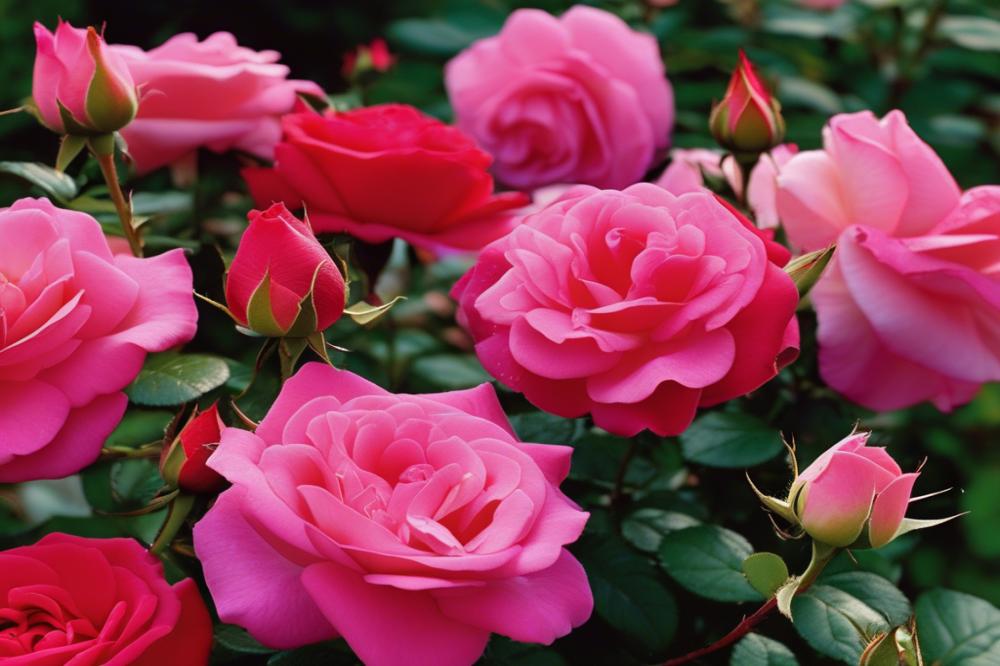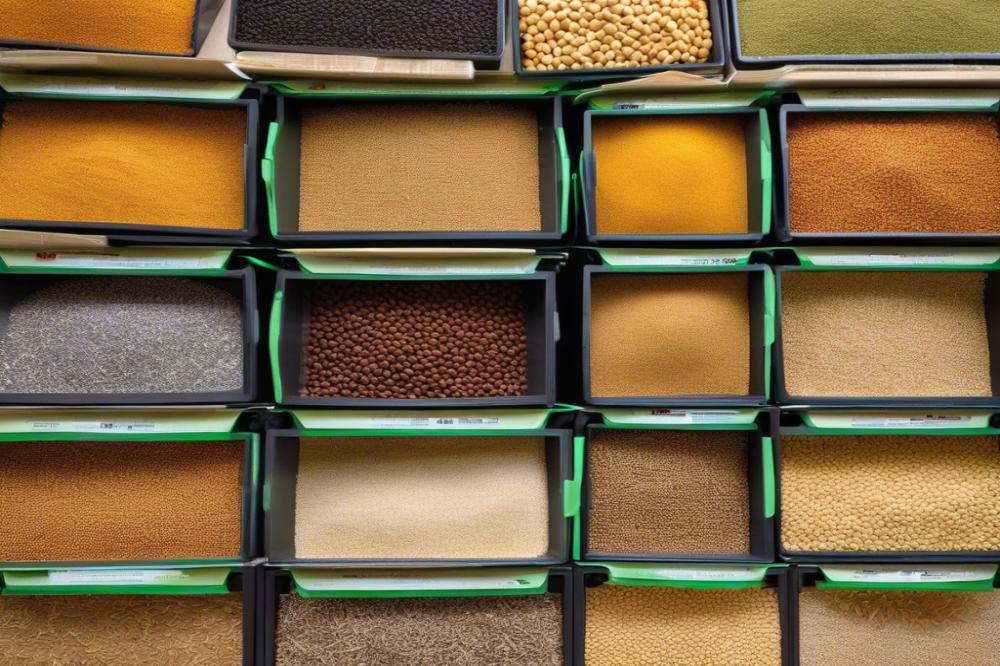Understanding garden pests
Pests like aphids pose a significant challenge for gardeners everywhere. These tiny insects are notorious for damaging not only roses but also a variety of ornamental plants. Their insatiable appetite can lead to severe health issues for your beloved plants. Left unchecked, an infestation can weaken plant structures, hinder growth, and even cause plants to die.
Caring for plants requires vigilance. Managing these pests is vital for maintaining lush gardens. Healthy plants attract beneficial insects, such as natural predators that help combat these pests. Therefore, implementing effective pest control methods is crucial for a thriving garden.
Various strategies exist to manage infestations. Homemade remedies, such as insecticidal soap and neem oil, can effectively treat affected plants. Horticultural oil is another option that can suffocate pests and protect plant health. By integrating these techniques, gardeners embrace sustainable gardening practices that minimize harm to the ecosystem while safeguarding their plants.
Consider your approach to tackling garden issues. Explore gardening tips that promote plant resilience against pests. With the right measures, you can create a flourishing environment for your plants and enjoy the beauty they bring to your landscape. Being proactive in dealing with aphids will lead to greater satisfaction in your gardening journey.
Understanding Aphids
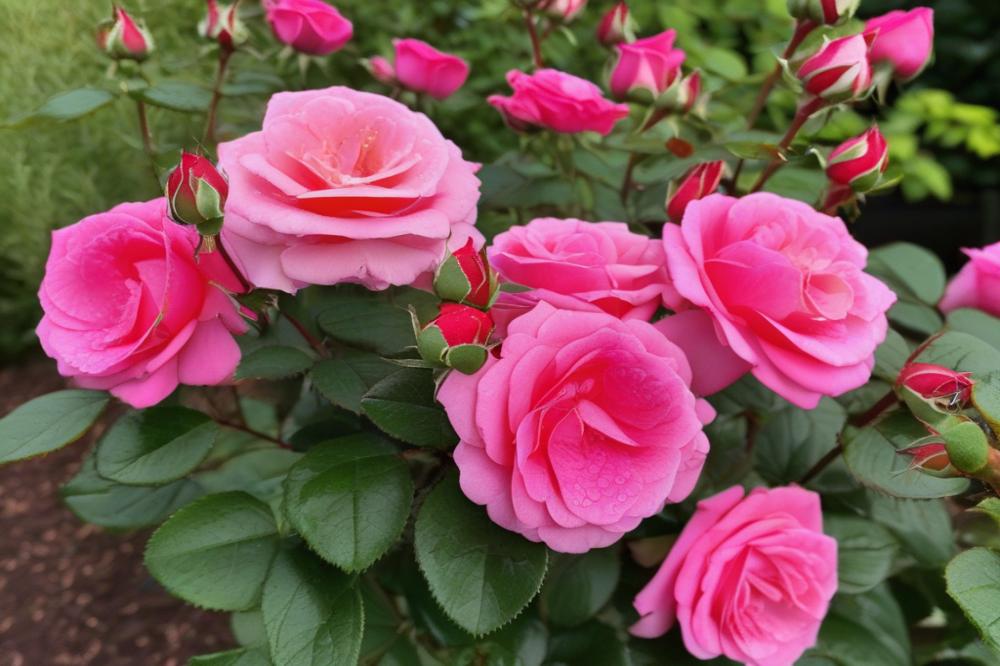

Aphids are small, sap-sucking insects that can be found on many plants, including roses and other ornamental plants. Their bodies are often green, black, or yellow in color. An adult aphid can be as tiny as 1/16 of an inch. They reproduce quickly, sometimes giving birth to live young without mating. This ability allows their populations to explode in warm weather. A single female can produce dozens of offspring in just a week, leading to an infestation that can damage your garden.
Types of Aphids Commonly Found
Several types of aphids target roses and ornamental plants. The green peach aphid is one of the most common culprits. It loves tender new growth. Another frequent visitor is the black bean aphid, which can also be seen on a variety of ornamental plants. Each species has its own preferences for host plants, but all share a similar destructive habit of feeding on plant sap.
Symptoms of Aphid Infestation
Identifying a problem early is crucial for good pest control. Look for signs such as curled leaves, stunted growth, or sticky residue on the plant. This residue, known as honeydew, can attract sooty mold. Inspect your roses closely for these telltale symptoms. Plants under attack may also appear discolored or have leaves that fall off prematurely. Early detection and action can help restore plant health.
There are several methods to combat these pests. Using insecticidal soap or horticultural oil can eliminate them while being gentle on your plants. Neem oil is another effective option that has the added benefit of repelling many other insects. Introducing natural predators like ladybugs enhances sustainable gardening practices. These beneficial insects will help keep pest populations in check. Follow these gardening tips to stay ahead in the battle against these unwanted guests.
Impact of Aphids on Plants
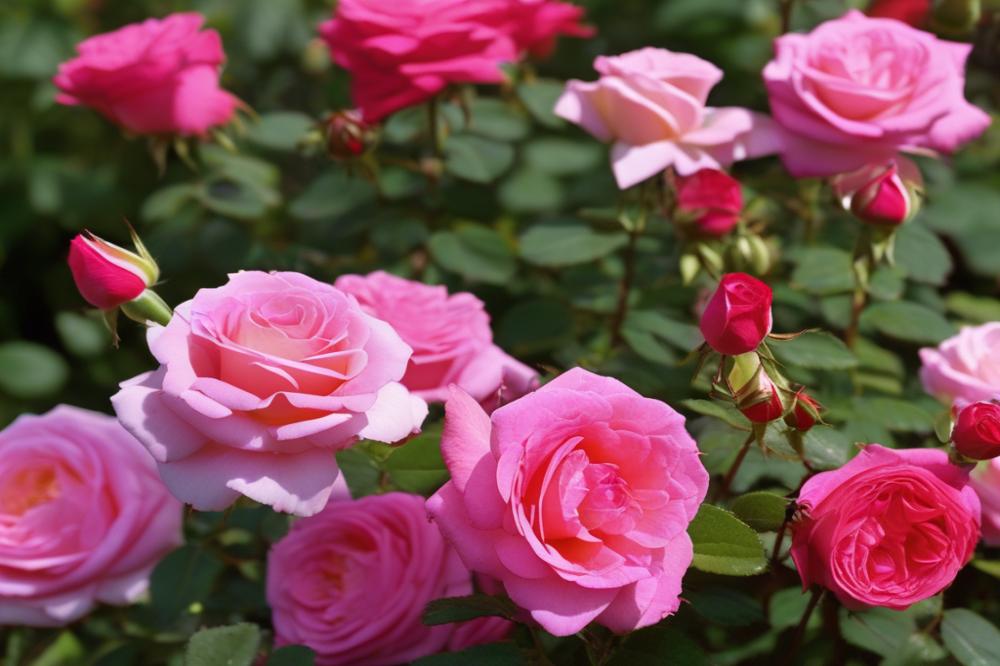

Roses and ornamental plants often suffer when pests invade. An initial reaction might be minor damage, but the effects can escalate quickly. Leaves may curl, yellow, or become distorted. This damage is unattractive and indicates a serious health issue.
Many plant lovers overlook the importance of pest control. While their physical appearance deteriorates, plants also struggle with nutrient uptake. This stress can stunt growth and make plants less vibrant. Healthy plants are best able to withstand environmental changes. When health declines, their beauty fades, impacting overall garden aesthetics.
Role in Transmitting Plant Diseases
Beyond visual damage, these pests have a role in spreading diseases. They can act as carriers for various plant viruses. Once a plant is infected, it may display visible symptoms such as spots or wilting. Rapid transmission occurs, especially in gardens where many plants are grouped closely together. This makes monitoring vital for all gardeners.
Plant unhealthiness can lead to issues beyond initial diseases. Some infections can persist in the soil for long periods. Waiting to address these issues often results in more complex problems. Seeking out solutions early is crucial. Popular options include neem oil, insecticidal soap, and horticultural oil.
Long-term Consequences of Unchecked Infestations
Left unchecked, these infestations can devastate your garden. Long-term neglect means losing not only your favorite plants but also potential biodiversity. A healthy ecosystem includes various species that support one another. When one is weakened, others may follow. This shift can alter the entire gardening landscape.
Using natural predators can help keep numbers down. These beneficial insects are essential for sustainable gardening practices. They provide a natural balance that synthetic methods can’t offer. Embracing a more organic approach leads to healthier planet and garden.
Seeking gardening tips from reliable sources can provide effective strategies. Early detection and timely action are key. Regularly check plants for signs of a problem. Creating a routine will help catch issues sooner rather than later.
Preventive Measures
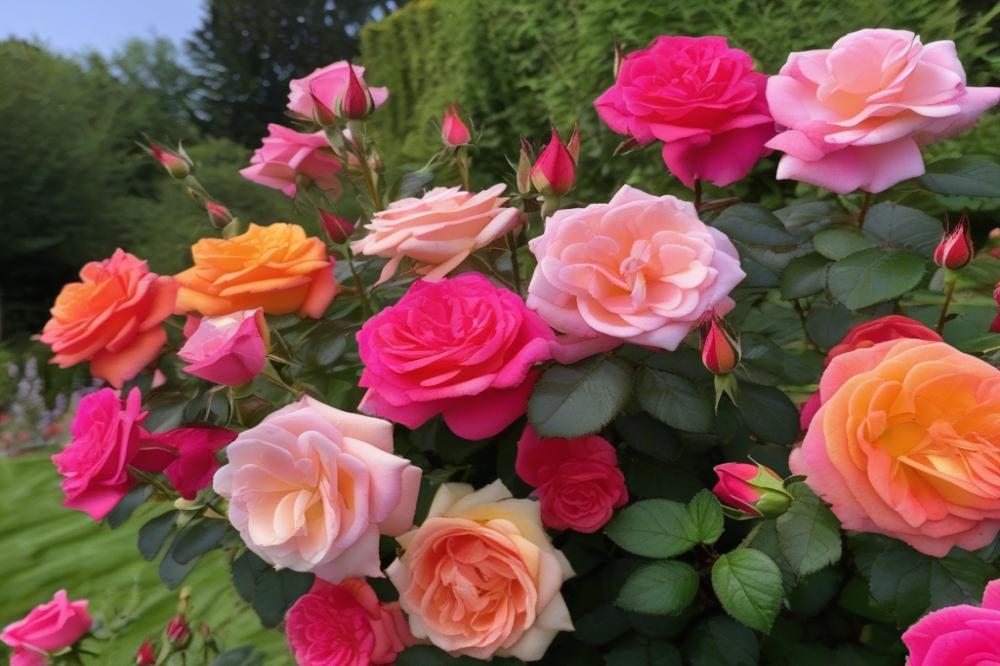

Regular plant monitoring is essential for a healthy garden. Checking your roses and ornamental plants frequently allows you to spot problems early on. This step is key in pest control, as it helps to identify any signs of trouble before they escalate. Keeping a close eye also helps you notice plant stress or disease that may invite pests.
Maintaining plant health is another critical aspect. Providing the right amount of water and sunlight promotes strong growth. Healthy plants are less prone to infestations since they can better resist any threats. You should also use organic fertilizers to enrich the soil, helping your plants thrive.
Consider companion planting to deter unwanted insects. Placing certain plants next to your roses can attract natural predators that feed on pests. For example, marigolds can entice ladybugs, which are great helpers in keeping populations low. This strategy supports sustainable gardening and benefits the ecosystem in your yard.
Cultural practices can greatly reduce the chance of infestation. Proper spacing between plants allows air circulation and minimizes humidity, conditions that pests love. Regularly cleaning up fallen leaves and debris helps eliminate potential breeding grounds. You can also prune plants to improve airflow, which aids in preventing future issues.
When you do notice pests, various natural solutions are available. Insecticidal soap is effective for treating infestations when applied correctly. Neem oil and horticultural oil are other great choices, as they disrupt pest life cycles without harming beneficial insects. Using these methods can help you manage your garden in an environmentally friendly way.
Natural Control Methods
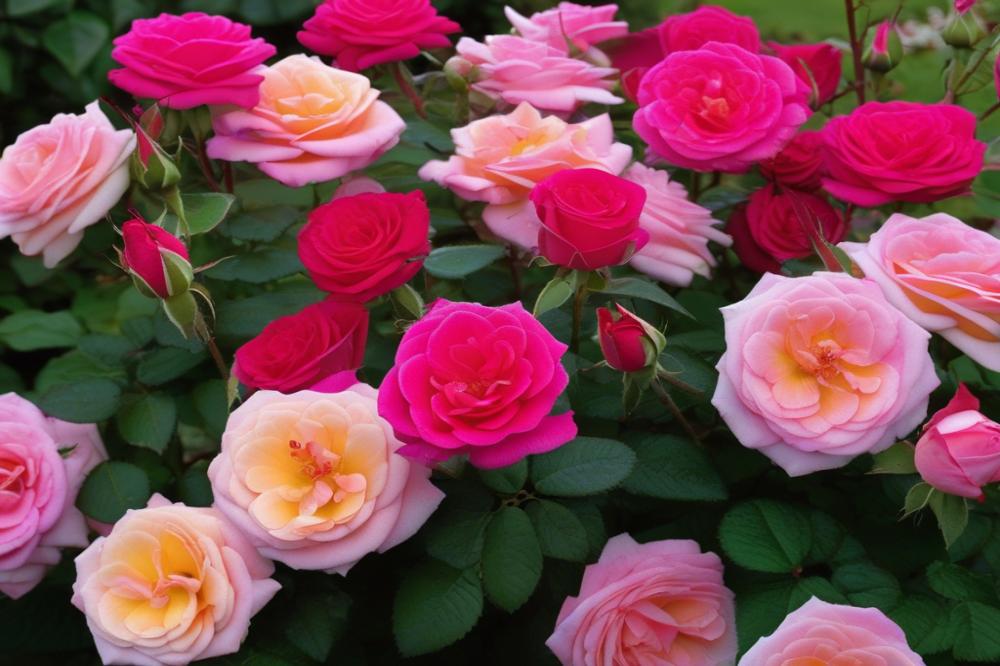

Many gardeners wish to avoid chemical treatments when managing pests on roses and ornamental plants. In such cases, turning to natural predators provides an effective alternative. Ladybugs and lacewings are two of the most common allies in the battle against unwanted garden invaders. Both insects devour large numbers of these tiny pests, offering a natural solution that helps maintain plant health.
Encouraging beneficial insects in your garden comes with distinct advantages. These natural predators not only target harmful pests but also contribute to a balanced ecosystem. By fostering an environment where these insects thrive, gardeners can reduce the need for chemical pest control measures. This choice supports sustainable gardening practices while ensuring your ornamental plants flourish.
Overview of Biological Control Options
There are several biological control options available for addressing insect issues. For example, releasing ladybugs can lead to a significant decrease in pest numbers. Additionally, planting a variety of flowers attracts these beneficial insects, creating a welcoming habitat. In some cases, gardeners might also consider insecticidal soap, neem oil, or horticultural oil as supportive measures, allowing for a more integrated approach to managing plant health.
Gardening tips such as companion planting can further enhance the effectiveness of these natural solutions. When you plant flowers and vegetables alongside ornamentals, you promote a diverse ecosystem where beneficial insects can thrive. Remember, the key to successful pest control lies in maintaining balance and practicing patience in your garden.
Chemical Control Options
When facing an infestation on roses and ornamental plants, various chemical control options can help. One highly recommended method is using insecticidal soap. This product is designed to target soft-bodied pests effectively. It works by suffocating them, which means that it’s both efficient and relatively gentle on your plants. Regular applications can drastically reduce pest numbers and promote overall plant health.
Neem Oil: A Natural Alternative
Neem oil is another effective solution for managing troublesome pests. It is derived from the seeds of the neem tree and acts as both a repellent and a growth disruptor. When applied to infested plants, neem oil can hinder the development of pests. This means that even if some bugs remain, they will not reproduce effectively. Using it regularly can keep your garden thriving.
Horticultural Oil: Benefits and Precautions
Horticultural oil offers several benefits in pest control. This product works by coating the insects and blocking their breathing pores. When used correctly, it can eliminate many pests and protect beneficial natural predators. However, precautions are necessary. Avoid applying it during hot weather, as this can harm your plants. Always read the label for specific guidelines to maximize its effectiveness.
Guidelines for Safe and Effective Chemical Treatments
To achieve the best results with any chemical treatments, follow a few simple guidelines. First, always test a small area of your plants before a full application. This will help you see how they react. Additionally, timing matters. Apply products during the early morning or late afternoon to prevent potential damage from the sun. Maintaining a routine can also support sustainable gardening. Regular treatments can prevent outbreaks from becoming severe.
Taking these steps can significantly aid in controlling pest populations. Implementing these chemical options can lead to healthier roses and ornamental plants. Keep an eye on your garden and adjust your strategies as needed. With patience and care, achieving a thriving garden is possible.
Sustainable Gardening Practices
Integrating pest control methods into sustainable gardening is essential for maintaining a healthy garden. When dealing with pests, using chemical-heavy solutions can harm beneficial insects. Instead, consider methods that promote a balanced ecosystem. Natural predators like ladybugs and lacewings are effective at managing pest populations without causing environmental harm. These tiny helpers can significantly contribute to plant health.
Minimizing chemical use should be a top priority for any gardener. Chemical pesticides can disrupt local wildlife and pollute the soil and water sources. By choosing sustainable approaches, you can protect the environment while still keeping your garden attractive. Instead of reaching for harsh chemicals, explore options like insecticidal soap and neem oil. They are safer for the ecosystem and can effectively aid in pest management.
Effective strategies for long-term management are vital in dealing with any pest issues. Regular inspection of your roses and ornamental plants can help catch problems early. Introduce companion planting to create a diverse environment that deters pests naturally. Planning your garden layout with beneficial plants can offer a unique defensive strategy. Even simple gardening tips, such as keeping your plants healthy with proper watering and nutrition, can reduce the chances of an infestation.
Another approach includes using horticultural oil, which provides a barrier against pests. Applying these oils can smother insect eggs and prevent them from maturing. Sustainable gardening is not just about battling pests but fostering a thriving garden. With the right techniques, you can create a space that supports both beauty and biodiversity.
Gardening Tips for Aphid Management
Identifying issues starts with careful observation. Look for small, soft-bodied insects on the undersides of leaves. You may also notice sticky residue or discolored foliage. These signs indicate a potential pest problem. Checking early can save ornamental plants from serious damage.
Addressing an infestation requires a mix of approaches. First, try washing the plants with a strong stream of water. This can dislodge many pests. Another effective remedy is insecticidal soap. This product targets the pests without harming the plants. Neem oil and horticultural oil also work well to control their populations.
Recommendations for Tools and Products
Having the right tools makes pest control easier. A handheld sprayer can help apply treatments effectively. Choose a sprayer that allows for fine misting. This method covers the leaves evenly. Invest in a magnifying glass to examine your plants closely. It’s essential for spotting tiny invaders early. Garden gloves protect your hands when handling plants and products.
In the realm of products, several options stand out. Look for organic solutions if you practice sustainable gardening. Insecticidal soap is highly recommended for those who want minimal environmental impact. Neem oil is another fantastic choice for managing unwanted guests. Horticultural oil creates a barrier against pests while promoting overall plant health.
Seasonal Considerations for Aphid Control
Keep seasonal changes in mind when planning your strategy. Spring often brings new growth and, unfortunately, pests. Monitor your plants closely during this time. In summer, take preventative measures by encouraging natural predators, like ladybugs and lacewings. These helpful insects can reduce pest populations significantly.
Fall is an excellent season for reflection and preparation. Clean up plant debris to prevent overwintering pests. Regular maintenance now will lead to healthier plants in the spring. Always remember, a proactive approach typically yields the best results in pest management.
Wrapping Up Effective Management Strategies
Recapping strategic approaches to controlling pests can greatly benefit garden lovers. First, consider introducing beneficial insects, such as ladybugs or lacewings, which naturally feast on harmful pests. Regularly inspecting plants will help catch issues early. It is also vital to maintain plant health through proper watering, nutrition, and pruning. These practices create stronger plants less susceptible to infestations.
Embracing sustainable gardening methods will make a positive impact on the environment. Utilizing organic pest control options, like insecticidal soap or neem oil, can protect your roses and ornamental plants without harming beneficial insects. It’s essential to promote a balanced ecosystem in your garden. This means avoiding harmful chemicals that could disrupt nature’s order.
Think about this: maintaining healthy roses and ornamental plants requires patience and effort. A proactive approach fosters resilient plants that can withstand typical pest challenges. Paying attention to your garden fosters an atmosphere where beauty thrives. Ultimately, your dedication to sustainable practices will yield lush surroundings that everyone can admire. Engage in these habits, and watch your garden flourish.

